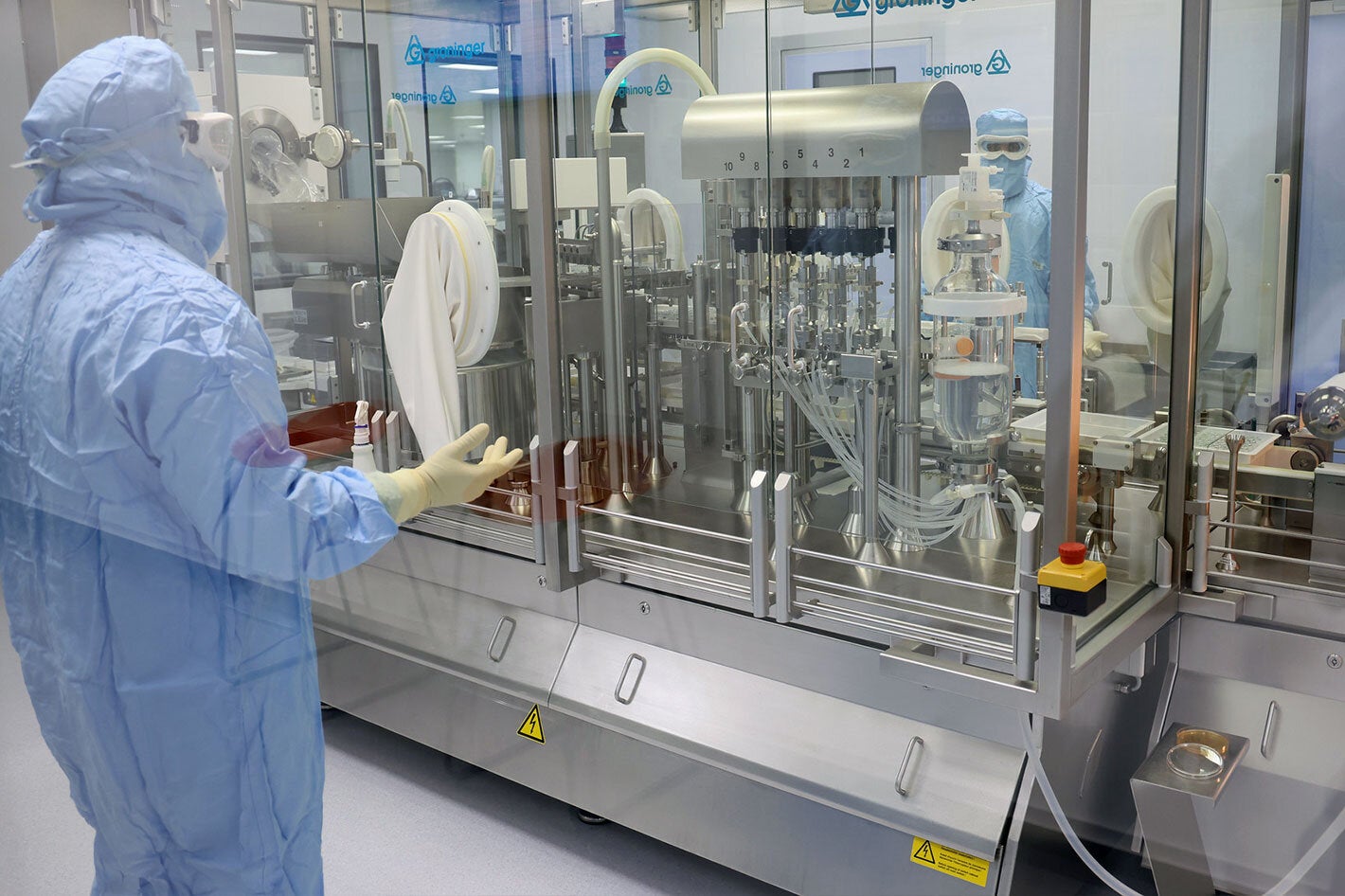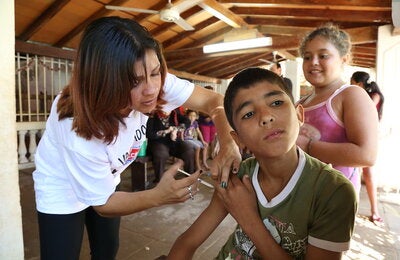
Washington DC, 6 May 2022 (PAHO) – The Pan American Health Organization (PAHO) has announced advances and new initiatives of the Regional Platform to Advance the Manufacturing of COVID-19 Vaccines and Other Health Technologies in the Americas. The announcement came during a webinar on strengthening production capacities to improve access to vaccines and other health technologies in Latin America and the Caribbean.
"We continue to support the development and incorporation of mRNA technology in Latin America and the Caribbean, along with the required transfer of technology, and are establishing regional centers of excellence for the evaluation and quality control of personal protective equipment (PPE), an issue identified as critical to protecting our health workers during the pandemic," said Carissa F. Etienne, Director of PAHO, in her opening remarks at the event.
She also announced the creation of an Advisory Committee for the platform, composed of experts in multiple disciplines, including health policy, science and technology, immunology, and production engineering.
"The Advisory Committee will provide guidance to the PAHO Director in defining strategies with our partners to accelerate advances in the development and production of health technologies for pandemic periods, as well as to address broader regional public health priorities," Etienne said.
The event included a presentation by PAHO Assistant Director Jarbas Barbosa, explaining the areas of work in which PAHO is currently active: promoting development and production initiatives; developing productive ecosystems; generating information for decision-making; and promoting regional and subregional dialogue and cooperation.
Barbosa highlighted the need to adopt sustainable public policies, promote the strengthening of regulatory systems, strengthen regulatory harmonization and convergence, and adopt new evaluation systems in order to create an ecosystem conducive to promoting the manufacture of quality medical products, including vaccines.
"To improve the availability of quality vaccines and products, it is imperative to build on the existing productive base and regulatory capacities, as decades-long support for the strategy to strengthen regulatory systems has demonstrated," he said.
"The last decade shows that the Region has adopted a successful approach to improving regulatory capacities. However, challenges and asymmetries persist, so a new regulatory strengthening policy is being proposed and will be presented at the 170th session of the Executive Committee," he added.
In the framework of the Regional Platform, PAHO is conducting several studies designed to generate information for decision-making. In seven of the Region’s countries (Argentina, Brazil, Chile, Colombia, Costa Rica, Mexico, and Peru) a study is underway to identify and analyze sectoral policies related to the production of medicines, vaccines, and other health technologies. A case study is also in progress on experiences and lessons learned concerning supply chains during the pandemic. Twelve countries are being covered in this study (Argentina, Brazil, Chile, Colombia, Costa Rica, Dominican Republic, Guatemala, Haiti, Jamaica, Mexico, Paraguay, and Suriname).
In addition, a call will be made for studies on regional value chains of biological products, chemically synthesized drugs, medical devices, and personal protective equipment. Those studies are expected to be completed by the end of 2022. Finally, in 2023, there will be an analysis of the capacity of public laboratories in eight countries (not yet selected) to monitor and evaluate compliance with international performance standards for strategic medical devices. Barbosa also mentioned PAHO’s support for subregional dialogue through collaboration initiatives with PROSUR, CELAC, and MERCOSUR.
The event included a panel on "Development of new technological platforms for vaccine production in Latin America: production of messenger mRNA vaccines for COVID-19 and beyond," moderated by James Fitzgerald, Director of Health Systems and Services at PAHO.
Speakers included Fernando Lobos, Director of Business Development, Sinergium Biotech; Karin Bok, Director of Pandemic Preparedness and Emergency Response, Vaccine Research Center, National Institute of Allergy and Infectious Diseases, National Institutes of Health (NIH); Martin Friede, Coordinator of the World Health Organization's Initiative for Vaccine Research (IVR), Immunization, Vaccines and Biologics (IVB); Sotiris Missailidis, Deputy Director for Technological Development at Bio-Manguinhos, Oswaldo Cruz Foundation; and Tiwadayo Braimoh, Policy and Advocacy Manager focused on COVID-19 and pandemic preparedness and response, Medicines Patent Pool (MPP).
The Regional Platform to Advance the Manufacturing of COVID-19 Vaccines and Other Health Technologies in the Americas draws on collaboration among countries and agencies to apply existing regional biomanufacturing capacity to the production of COVID-19 vaccines and other medical technologies. The platform is based on the principle that pharmaceutical manufacturing should take place at the regional level and benefit the entire Region, and that the distribution of vaccines to all countries will be carried out by the PAHO Revolving Fund.



